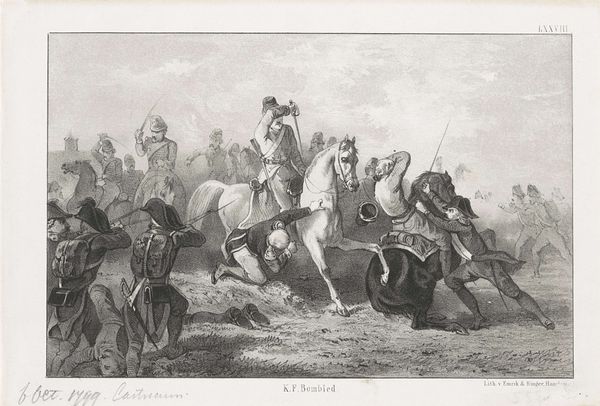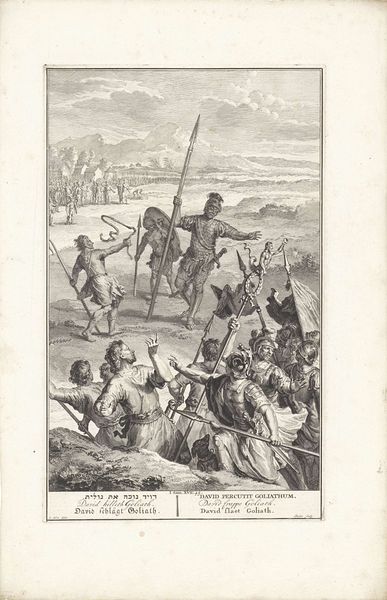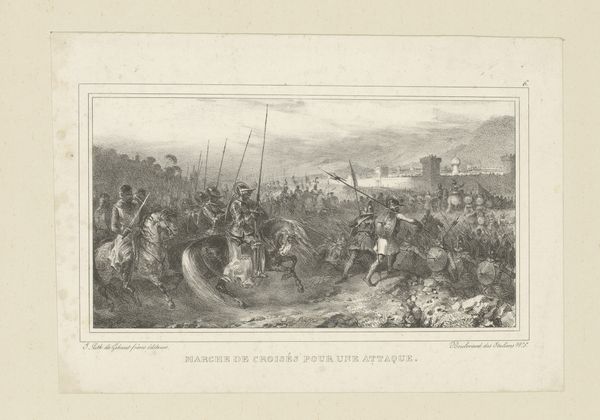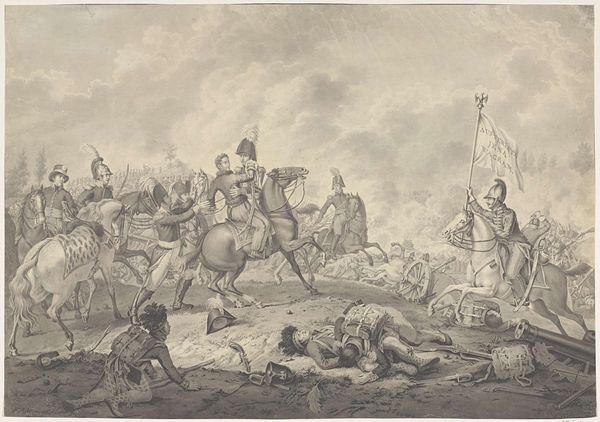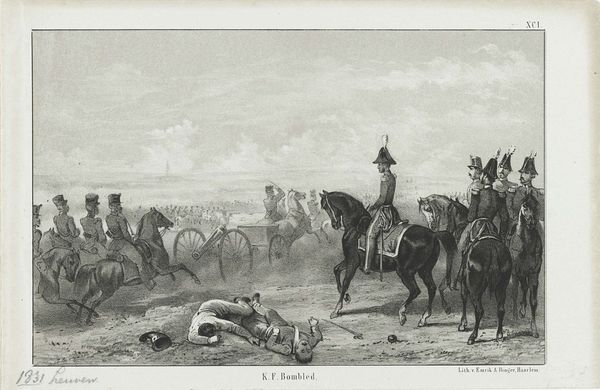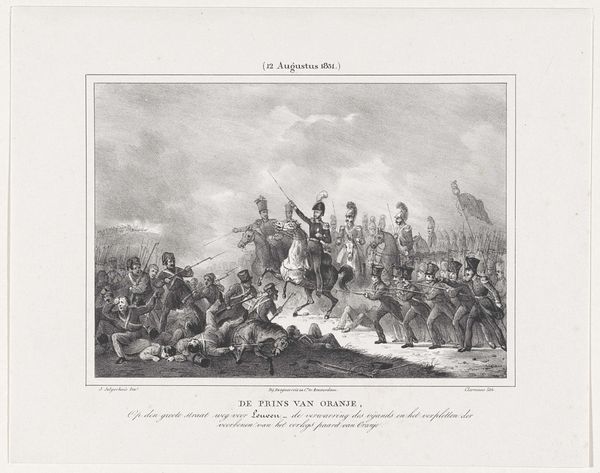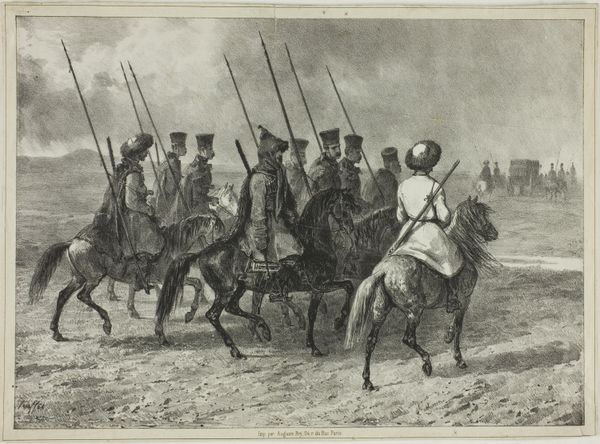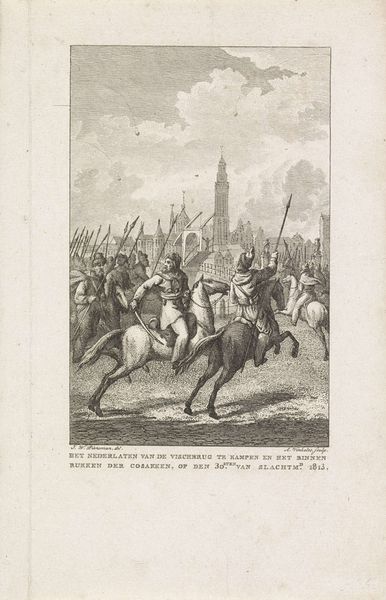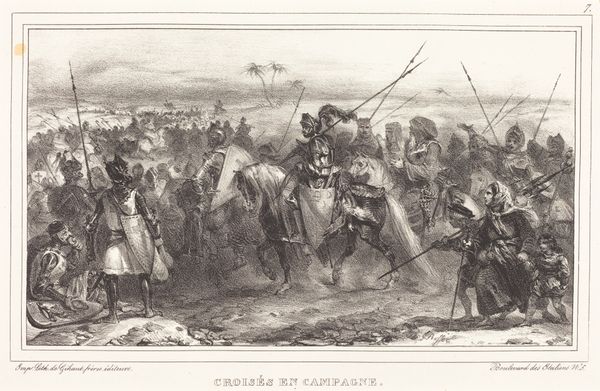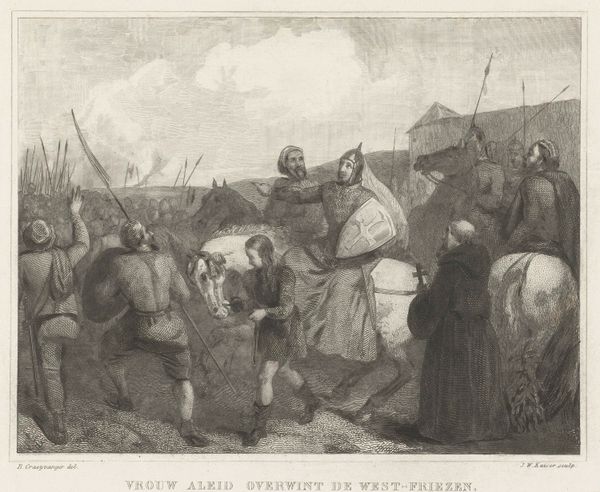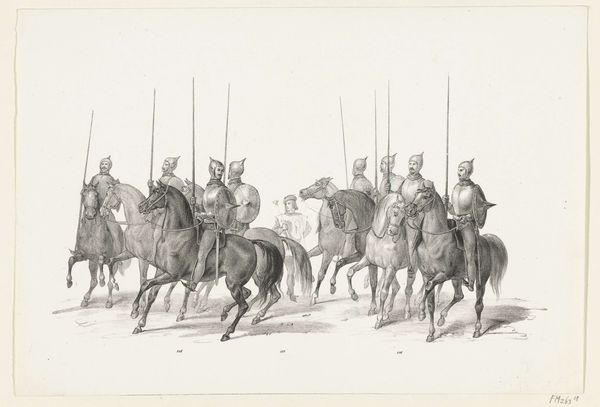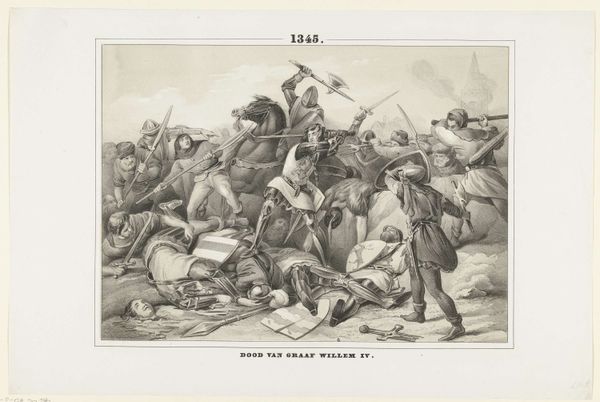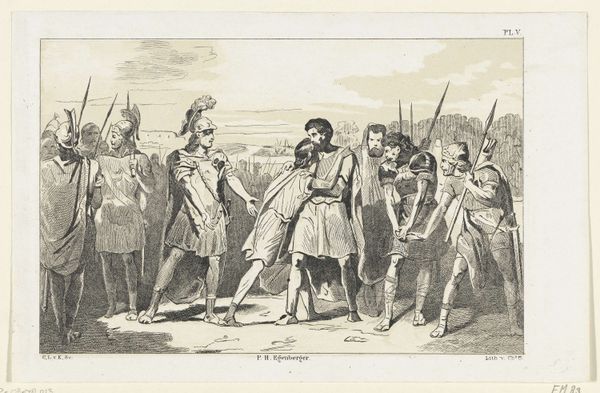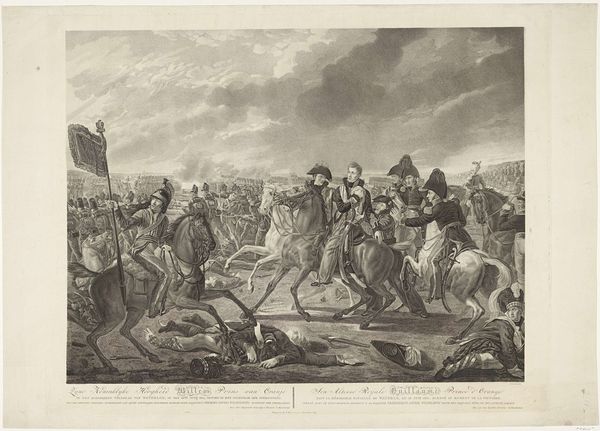
Dimensions: height 363 mm, width 245 mm
Copyright: Rijks Museum: Open Domain
Karel Frederik Bombled made this lithograph of a winter battlefield sometime in the 19th century. Lithography is a printmaking process that relies on the chemical repulsion of oil and water. To make this print, Bombled would have drawn the composition with a greasy crayon onto a flat stone. The stone was then treated with acid, which fixed the drawing. Ink was applied, sticking only to the greasy areas, and then the image was printed onto paper. Look closely, and you can see the subtle tonal variations achieved through this process, giving depth and texture to the scene. Lithography allowed for relatively quick and inexpensive reproduction, making images like this accessible to a wide audience. As such, it played a crucial role in shaping public opinion about political events. Here, Bombled captures the chaos and brutality of warfare, while also subtly pointing to the labor involved in both the making of the artwork and the fighting of the battle itself. It reminds us that behind every image lies a story of materials, making, and social context.
Comments
No comments
Be the first to comment and join the conversation on the ultimate creative platform.
